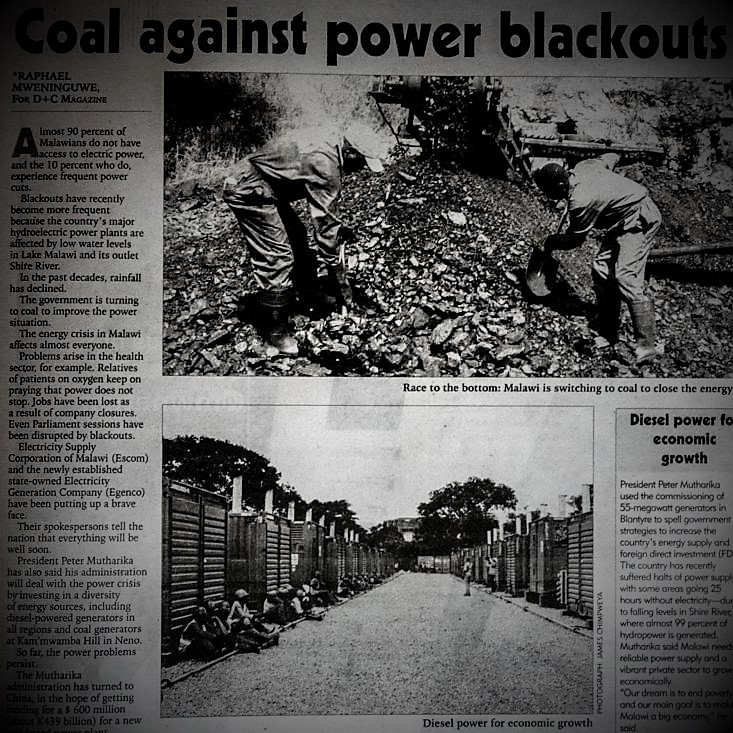
Almost 90 percent of Malawians do not have access to electric power, and the 10 percent who do, experience frequent power cuts.
Blackouts have recently become more frequent because the country’s major hydroelectric power plants are affected by low water levels in Lake Malawi and its outlet Shire River. In the past decades, rainfall has declined.
The government is turning to coal to improve the power situation.
The energy crisis in Malawi affects almost everyone. Problems arise in the health sector, for example. Relatives of patients on oxygen keep on praying that power does not stop. Jobs have been lost as a result of company closures. Even Parliament sessions have been disrupted by blackouts.
Electricity Supply Corporation of Malawi (Escom) and the newly established state-owned Electricity Generation Company (Egenco) have been putting up a brave face.
Their spokespersons tell the nation that everything will be well soon.
President Peter Mutharika has also said his administration will deal with the power crisis by investing in a diversity of energy sources, including diesel-powered generators in all regions and coal generators at Kam’mwamba Hill in Neno. So far, the power problems persist.
The Mutharika administration has turned to China, in the hope of getting funding for a $ 600 million (about K439 billion) for a new coal-based power plant. The location will be Kam’mwamba in the Southern Region. Environmental experts warn, however, that a coal plant is environmentally harmful. Burning coals releases carbon emissions and thus drives climate change.
The Paris Climate Agreement is about reducing such emissions. Malawi is a party to the Paris accord. It has committed to mitigating global warming. Building new coal-fired facilities, however, worsens the phenomenon.
Malawi is affected by droughts and floods, which climate change makes more frequent and more devastating. However, the current shortage of electricity seems to overrule any climate issues.
“The President is very concerned about the energy crisis, so measures are being put in place to deal with the crisis,” reads a statement from State House. One of the measures is the planned new power station. Moreover, government has purchased diesel generators that will add power to the national grid.
Burning diesel results in carbon emissions too. The policy may be environmentally harmful, but business leaders welcome it. Economics commentator Chikavu Nyirenda wants the Malawian authorities to do even more: “Industries are being closed due to the energy crisis, rendering people jobless.” In his eyes, the government must become serious about boosting industrial production by ensuring reliable power supply.
